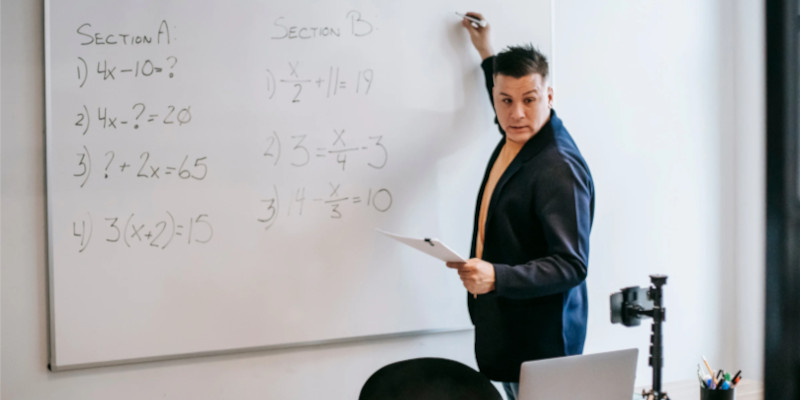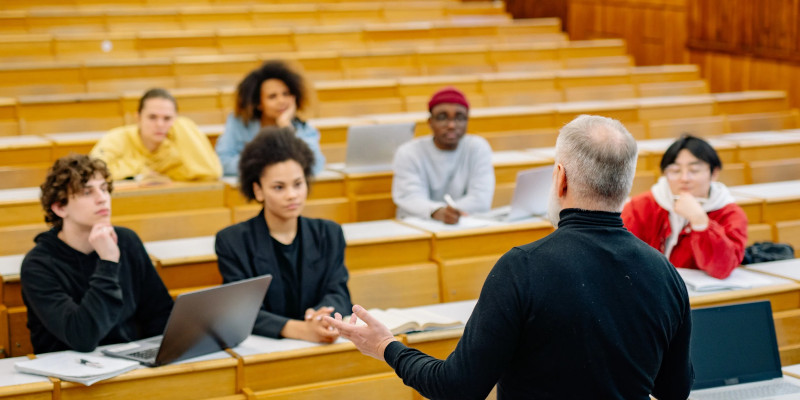As technology continues to play an increasingly important role in education, simulations have become a popular tool for teachers to engage and educate students on a variety of topics. With so many options available, it can be difficult to know which simulation is best for your students.
To help you make an informed decision, here are some key factors to consider when choosing the best simulation for your them:

In general, serious games or educational simulations are considered to have positive effects on many aspects of student engagement, as well as cognitive learning gains and subject-related interest. However, few studies have examined what combination of game elements influence engagement and learning, and how these factors are related. This is why it is so important to establish the objectives to be worked on before choosing which simulation would work best for you.
Age and skill level: Another important factor to consider when choosing a simulation is the age and skill level of your students. Some simulations may be too advanced for younger students, while others may not be challenging enough for older students. Be sure to choose a simulation that is appropriate for the age and ability level of your students.

According to research, involving twelve elementary classes each with 153 students aged 9 to 12 years old conducted in an experimental field in which students were randomly assigned to interact with an educational simulation or a serious digital game, it was concluded that simulations have a great impact on classroom enjoyment and self-reported levels of deep thinking, which are higher when learning with a serious game.
While post-test knowledge is only influenced by prior knowledge, self-reported cognitive learning gains and increases in interest are positively correlated with deep thinking and enjoyment.
These results lead to the conclusion that learning with serious games does not always lead to the expected increases in all aspects of engagement and learning outcomes but gives good signs that adults even in other fields might feel much more fluent in lessons and enjoy even the most serious topics.

According to the simulation used, meaningful feedback is a key factor for students to achieve objectives, as well as to encourage them to reflect on misunderstandings and transfer learning to new educational contexts (Swanson et al., 2011). Thus, many studies have concluded that one of the most important parts of this experience is to investigate the ways in which student-student interaction and social feedback are generated through game mechanics.
Higher education students evaluate games and simulations by focusing on behavioral change and improvement of interactive skills, because they consider them valuable items in the learning process.
A survey by Chen (2010) shows that games can be social and interactive technologies, which help students build friendships with their peers and provide multiple types of interaction.

Much of the literature on the subject emphasizes the importance of player interaction, indicating that the inherent interaction between players and their learning environment situated in the game provides structured challenges and feedback. This helps us confirm that, due to the need to receive feedback from peers and the game itself, greater opportunities for interaction arise in game-play, adding that interaction is a decisive factor in the construction of knowledge. Indeed, students who report improved teamwork through the use of serious games attribute it to receiving feedback and emphasize that even conflict is often considered valuable, as it brings diverse points of view to the fore.
In conclusion, by exploring the impact of games and simulations, in addition to their behavioral learning outcomes, in environments where students are especially engaged in interactive and participatory simulation tasks, it is possible to demonstrate that simulations have a positive effect on both participants and acquired learning. It is shown that simulations have a significant impact on both participants and acquired learning and it is concluded that learners benefit from appropriate feedback and reflection as long as these activities are supported by adequate channels of communication, participation and interaction.
Learners can also actively participate in a web-based simulation to facilitate immersion and accessibility. A simulation framework can facilitate learning in terms of flow experience and learning strategies even for those with special needs.

At this point, it is necessary to understand that simulations not only challenge students to develop interpersonal, analytical and creative skills, discouraging absenteeism, feelings of boredom and listlessness, leading to academic achievement, but also for instructors, in the context of the teaching experience.
By considering these factors, you can be sure that you are choosing the best simulation for your students. With the right simulation, you can help your students develop a deeper understanding of the subject matter, while engaging them in a fun and interactive way that takes your class and students to the next level.
Sources:
Imlig-Iten, N., & Petko, D. (2018). Comparing serious games and educational simulations: Effects on enjoyment, deep thinking, interest and cognitive learning gains. Simulation & Gaming, 49(4), 401-422.



